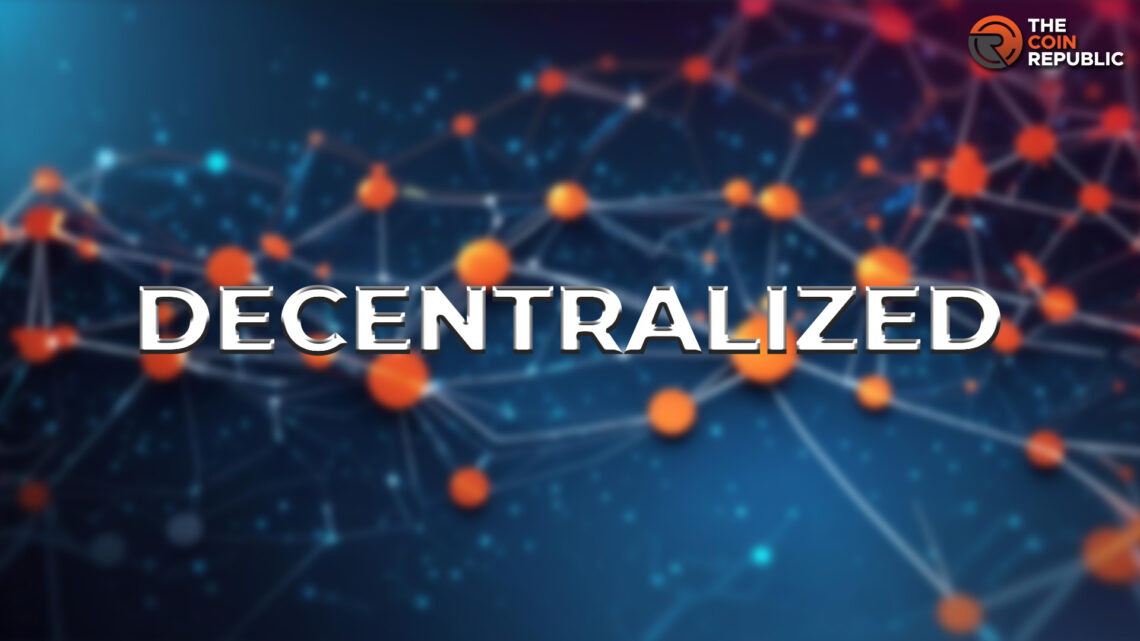- 1 Decentralized identity (DID) empowers users, enhances privacy, and mitigates centralized data risks.
- 2 Verifiable credentials enable secure, privacy-respecting identity data exchange across sectors.
- 3 Despite challenges, DIDs and verifiable credentials promise a resilient, user-centric digital identity future.
In the conventional identity model, central authorities like governments or corporations act as custodians of identities by issuing user IDs and credentials. However, this leads to systemic risks like single points of failure, data breaches, and mass surveillance overreach. Decentralized identity (DID) offers an alternative model where users fully own and control their digital identities without centralized intermediaries. DIDs are enabled through open-source standards and protocols for verifiable credentials and identifiers on distributed ledgers.
The Rise of Self-Sovereign Identity
A key motivation behind decentralized identity is enabling self-sovereign identity, where users are the ultimate owners and stewards of their identity and data. With DIDs, identity attributes reside on a user’s device or encrypted cloud storage instead of external centralized databases. Through cryptographic verification, users control what identity they claim to share, with whom, and when. This prevents a single compromised third party from impersonating users’ identities or tracking their activities across contexts. DIDs enable relying less on easily hackable usernames and passwords. Decentralization enhances privacy, security, and consent-based sharing of identity credentials.
Decentralized Identifiers (DIDs)
The Decentralized Identifier (DID) introduces a novel form of universally distinct marker for confirming digital identities. In contrast to conventional usernames or email IDs, a DID persists independently without any central authority or identity provider. Some key properties of DIDs are as follows:
This is a new type of identifier for self-sovereign digital identity. DIDs use public key cryptography to enable security, privacy, and full user control over their identities. Unlike conventional identifiers, DIDs do not rely on any central authority or identity provider. Instead, a DID resolves to a DID document by looking up the DID on a distributed ledger such as a blockchain. This eliminates the need for a centralized database query to resolve an identifier.
A major advantage of DIDs is that they can be completely owned and managed by the identity subject through their cryptographic key material. The DID specification is ledger-agnostic, which means that DIDs can leverage any distributed ledger such as Bitcoin, Ethereum, Sovrin or IPFS. No single ledger controls the identifier. This decentralization enables the persistence of DIDs independently of any organization. DIDs are designed for lifelong portable digital identity that users fully control, persisting even as users switch affiliations or as providers change.
The decentralized, self-sovereign, and persistent nature of DIDs represents a paradigm shift in how digital identity works. DIDs are shaping up to be the foundation for verifiable digital identity in the 21st century.
Moreover, there are two main protocols that enable managing and communicating with DIDs:
DID Document – This contains metadata associated with a DID, including authentication mechanisms, public keys, service endpoints, and other attributes. It provides a way to discover details about a DID subject.
DID Resolution – The process of taking a DID string and resolving it to a DID document that contains attributes using the ledger. Enables looking up a DID based on the specific distributed ledger.
Together, they enable interoperable exchange of digitally verifiable data between parties using DIDs while preserving user privacy.
Verifiable Credentials
Verifiable credentials represent digitally signed identity attributes that can be securely shared with others in a way that respects privacy.
Verifiable credentials are a critical component of decentralized digital identity systems. They contain identity claims that are digitally signed by an issuing organization, which is the authority over the credential. There are three key roles:
Issuers create credentials containing claims about a subject and digitally sign them using the issuer’s private key. For example, a government agency can issue verified credentials containing a citizen’s personal information.
Holders are the subjects who receive credentials about themselves from issuers. They can securely store these verifiable credentials in digital wallets on their devices.
Verifiers are third-party entities that can verify claims in a holder’s credentials by checking the validity of the issuer’s digital signature.
Some key properties make verifiable credentials secure and privacy-enhancing. They are selectively disclosable, allowing users to share specific credentials without revealing actual identity data.
Digital signatures make them tamper-evident and difficult to manipulate. Zero-knowledge proofs enable identity claims to be validated without full disclosure of personal data. Credentials can be verified by checking the issuer’s decentralized identifier on a public ledger.
Verifiable credentials enable the secure, user-controlled exchange of identity information in a decentralized identity ecosystem.
Use Cases Across Sectors
In the financial services sector, decentralized identity can enable secure customer onboarding, regulatory compliance, and know-your-customer (KYC) processes. Financial institutions can leverage verifiable credentials to validate customer information like proof of address and ID documents in a privacy-preserving way.
For healthcare, patients can use decentralized health IDs (DIDs) and credentials to securely share their medical records across different providers. This maintains patient privacy while giving medical personnel trusted access to critical health data.
Enterprises can adopt decentralized identity for passwordless employee authentication within their systems. This involves provisioning employee DIDs along with issuing verifiable workplace credentials, which are then used for access control.
Online communities can build reputation systems based on verified credentials and peer DIDs to establish trust and quality while preserving user privacy. For example, it could be used in credentialing expertise, achievements, or certifications without revealing real identities.
Government agencies can modernize identity verification services for citizens by using DIDs and issuing verifiable credentials for IDs like driving licenses, tax records, etc. This enhances privacy compared to centralized databases that are prone to surveillance overreach and breaches.
Benefits Over Centralized IDs
Decentralized identity enables full user ownership and control over digital identities. Unlike centralized systems, there are no aggregated honeypots of personal data that are vulnerable to breaches. Users retain custody of their identity claims.
Selective disclosure of specific credentials via zero-knowledge proofs provides enhanced privacy over revealing entire identities. Only the required identity attributes get validated instead of a full profile transfer to relying parties.
Verifiable credentials that are cryptographically signed by issuers make identity forgery and fraud far more difficult compared to self-asserted claims. The credentials are resilient against tampering.
Distributed ledger-based resolution eliminates single points of failure. Identities persist independently of any individual identity provider through decentralized lookups.
Open standards enable interoperability across vendors instead of fragmented, siloed identity management systems. DIDs and verifiable credentials are vendor-neutral.
Users enjoy fine-grained control over what credentials they share, with whom, when, and how much. They can minimize identity exposure through selective disclosure by default.
Challenges and Path Forward
A major challenge is around key management and overall usability for average users. The use of public-private key pairs and digital wallets introduces new complexities related to key backup, portability, and recovery. Compared to usernames and passwords, private keys require additional steps that may prove difficult for non-technical users.
Successful deployment requires extensive ecosystem coordination between credential issuers, holders, and verifiers. All entities in a sector like finance or healthcare need to align to support the same standards and protocols for identifier resolution and verifiable credentials.
Regulatory uncertainty remains regarding evolving data privacy practices and requirements around decentralized identity systems and verifiable credentials. Additional policy work is required to enable compliance.
While some networks like Sovrin have emerged, common governance frameworks and models still need to be fully developed for overseeing decentralized identity at a global scale. A cooperative model between the public and private sector is required.
Despite these challenges, DIDs and verifiable credentials represent a powerful approach to user-centric digital identity for the 21st century as the world moves beyond passwords. With improvements in usability, and open standards seeing rising adoption, decentralized identity promises to balance security, privacy, and convenience for the future.
Conclusion
Decentralized identifiers and verifiable credentials are emerging as powerful new standards for user-controlled digital identity. By eliminating central authorities and by enabling self-sovereign identity, DIDs and VCs promise to enhance the privacy, security, and portability of identity information online.
Despite adoption challenges around key management and ecosystem coordination, decentralized identity represents a more resilient model that gives users greater autonomy. As digital interactions continue rising, DIDs and VCs have the potential to balance convenience, trust, and user rights in the identity solutions of the future.

With a background in journalism, Ritika Sharma has worked with many reputed media firms focusing on general news such as politics and crime. She joined The Coin Republic as a reporter for crypto, and found a great passion for cryptocurrency, Web3, NFTs and other digital assets. She spends a lot of time researching and delving deeper into these concepts around the clock, and is a strong advocate for women in STEM.


 Home
Home News
News







